Melissa Roth




For my lefty role models, Mary Roth and Joanne Barry
 his hook has traveled a very long road and owes many debts, not the least of which are on my Visa card.
his hook has traveled a very long road and owes many debts, not the least of which are on my Visa card.
First and foremost, I want to thank the scholars who've dedicated years of research to this topic and helped to advance the science. Several of them were especially generous with their time and knowledge, in particular Michael Peters at the University of Guelph, whose insights and comments and translations of complex research were invaluable. I'm also grateful to Steve Christman, Dan Geschwind, Lauren Harris, Peter MacNeilage, Clare Porac, and Jeannette Ward for taking the time to share research findings and expertise. And though we never spoke, I'm grateful for the many contributions of Marian Annett, the foremother of much of the research covered in this book.
Special thanks go to Ann Treistman, who was there at the beginning of this project and ultimately helped to give it a second life several years later. And to Elizabeth Sheinkman at the Elaine Markson Agency, also there at the beginning, for not giving up.
I'm grateful to M. Evans and Company, in particular Matt Harper, for his thoughtful and thorough edits, big and small, and for shepherding the manuscript through its grueling last laps; and to Enrica Gadler, who acquired the book and provided it with a better road map. Also at M. Evans, I'd like to thank Chrissy Kwasnik and Dina Jordan.
I was also fortunate to have as my "frontline" editor Mary Beth Ross, whose scholarly insights and sharp editorial instincts made their mark throughout this book's long life. Lucky for me she is also my mom, so I could afford her. It was her early interest in language and the brain that sparked my own curiosity about the topic many years ago.
Thanks also go to Ethan Nosowsky and Heather King for their edits and comments on the cultural history chapter and to Rachel Warren for her input on the science chapters.
For the book's pre-9/11 incarnation, I am indebted to David Hirshey, who also gets credit for the title. Jeff Kellogg provided helpful editorial guidance on early drafts. Geoff Shandler's big picture suggestions were also incorporated. I was also lucky to find Jon Marelli, a resourceful researcher and scholar.
So many people shared tips and thoughts and research findings over the years, I regret that I won't be able to list them all here. But special thanks go to Rich Roth, my father, and Geoff Roth, my brother. Also thanks to Lila Hicks and Kiku Lani for their documentary insights, Mary Christ for her hawk eye for all things lefty, and Tina Jordan for her ideas and suggestions, no doubt the product of her left-handed brain.
Finally, special thanks to my late aunt Katherine Reckling Scott, a switched lefty who bought me a special left-handed book from this very publisher when I was seven years old.
 t was 1979, and I was in the middle of my adoption phase. My mom had just taken me to see Annie, and I was fairly sure she was getting ready to tell me my own past life story, the one about the orphanage and how she rescued me from all those hard knocks and loud kids. She must have thought it was a little odd the way I'd started courting all her friends, dragging them up to my room to show them my cartwheels and Cray-pas drawings. I was convinced these displays would make each of my "real moms" all the sorrier for leaving me as they did.
t was 1979, and I was in the middle of my adoption phase. My mom had just taken me to see Annie, and I was fairly sure she was getting ready to tell me my own past life story, the one about the orphanage and how she rescued me from all those hard knocks and loud kids. She must have thought it was a little odd the way I'd started courting all her friends, dragging them up to my room to show them my cartwheels and Cray-pas drawings. I was convinced these displays would make each of my "real moms" all the sorrier for leaving me as they did.
Psychologists will tell you that many kids go through an adoption phase, imagining a different life somewhere, where parents don't fight and dogs can sleep on your bed. My adoption phase was a little more scientific: I was sitting at Thanksgiving dinner, counting the number of forks I would need to round up for dessert duty, when I decided to count them again. Twenty-two people were gathered around my grandmother's table, and only one was using her left hand: me. My fifth-grade teacher, Mr. Burns, had just explained that there was no such thing as a "right" or "wrong" hand. Some of us are just born to be left-handed. It's passed down from our parents. My parents, and my grandparents, were all right-handed.
My kindergarten teacher, Mrs. North, regarded a left-hand preference as an act of defiance that needed to be scolded and shamed, along with biting and sand-eating. She had big, silver hair and an abrupt voice, but my only clear memory of her is the day she yelled my name across the sea of nap blankets. "Muh-lisssa! What are you doing?!" I was quietly coloring the Winter Wonderland mural with a crayon, but I was too scared to answer. "Why are you holding the crayon in that hand?"
Mrs. North was about the same age as my grandmother. When she was in school, the nuns tied my grandmother's left hand behind her back to break her of her "sinister" habit. She struggled with the early grades, all that emphasis on legible handwriting. Later on, there were some battles with the sewing machine and the iron, causing her sisters to worry about her marriage prospects. But she managed to become a strong student, a wife, and a brilliant general, brigadeering an army of seven kids and eighteen grandkids with the tactical skills of Napoleon (also a lefty). Of course, grandchildren struggle to decipher the right-handed notes she scrawls in our birthday cards. And in the fall of 2000, she contributed to the presidential election melee when she accidentally voted for Pat Buchanan. (She was an eighty-five-year-old switched lefty in a righthanded voting booth with a dyslexic butterfly ballot.) But when my grandmother first shared her own lefty tales with me, I stopped searching for my real parents. They were there the whole time, just being recessive. Or so I thought.
Vindication finally came ten years ago when I visited my first neurologist. The first question he asked, before I could tell him about my migraine headaches, was "Are you left-handed?" At last! I had found what I'd always suspected and secretly wished for: one allencompassing alibi that explained everything, every headache and foul mood, all the bad luck and false starts. I was left-handed. "We don't know why," the doctor said, "but the left-handed are more likely to suffer from migraine headaches."
Six months later, when I discovered that simple changes in diet, sleep, water intake, and stress levels could ease my headaches, the same changes that seem to help right-handed migraineurs, I stopped accepting my doomed lefty fate and decided to look into this great mystery. After some research, I figured out what the doctor was talking about. It is described as the theory of the "left-hander syndrome." Captured in a controversial 1991 book by the same title, the theory claims that left-handedness is a "pathology," caused by prenatal conditions or birth stress that leads to a form of brain damage. It was a little bit more alibi than I was looking for, but it began the research that lead to this book.

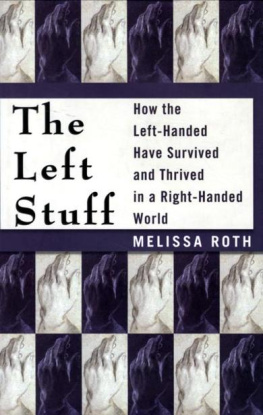

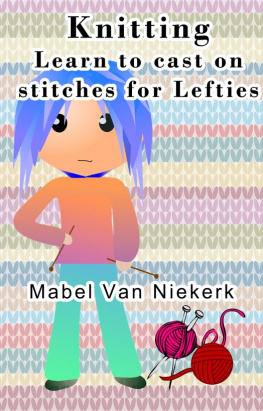
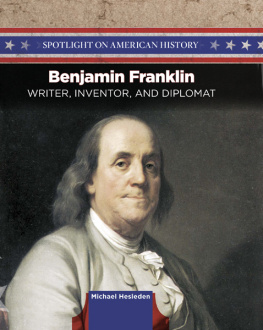
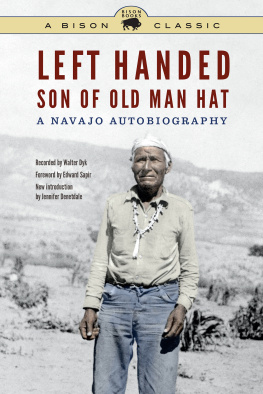
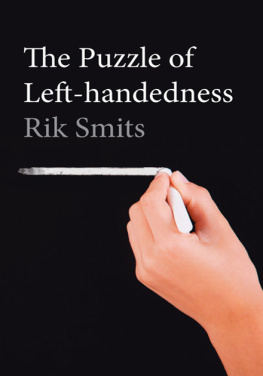
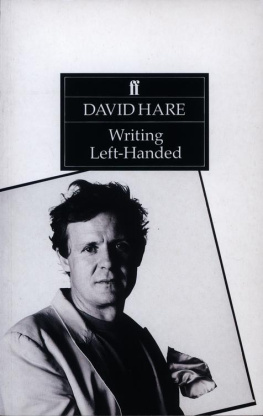
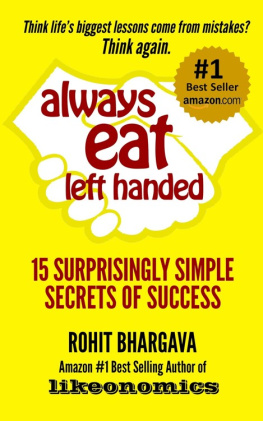
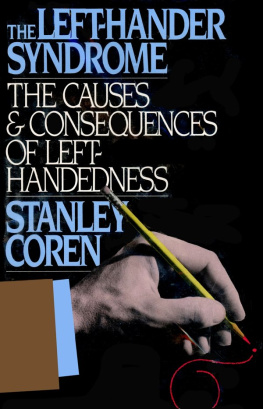
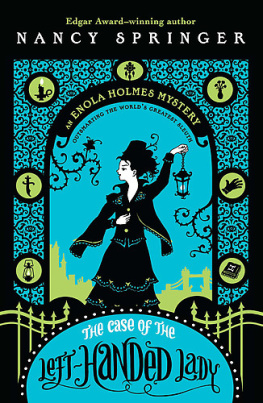







 his hook has traveled a very long road and owes many debts, not the least of which are on my Visa card.
his hook has traveled a very long road and owes many debts, not the least of which are on my Visa card.
 t was 1979, and I was in the middle of my adoption phase. My mom had just taken me to see Annie, and I was fairly sure she was getting ready to tell me my own past life story, the one about the orphanage and how she rescued me from all those hard knocks and loud kids. She must have thought it was a little odd the way I'd started courting all her friends, dragging them up to my room to show them my cartwheels and Cray-pas drawings. I was convinced these displays would make each of my "real moms" all the sorrier for leaving me as they did.
t was 1979, and I was in the middle of my adoption phase. My mom had just taken me to see Annie, and I was fairly sure she was getting ready to tell me my own past life story, the one about the orphanage and how she rescued me from all those hard knocks and loud kids. She must have thought it was a little odd the way I'd started courting all her friends, dragging them up to my room to show them my cartwheels and Cray-pas drawings. I was convinced these displays would make each of my "real moms" all the sorrier for leaving me as they did.